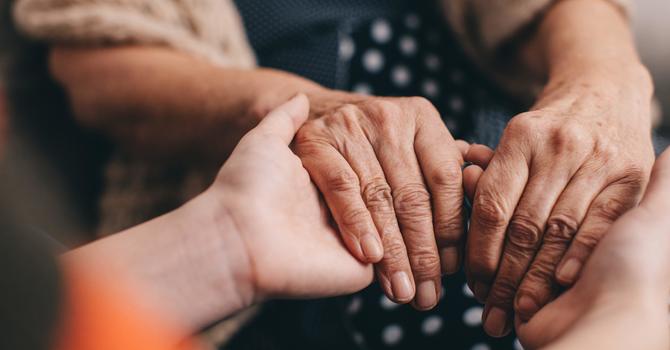
Living a life with self-compassion and gratitude can be seen as revolutionary acts in our consumerist culture, where we are groomed to notice our areas of inadequacies and to have a mindset based in scarcity. Our sense of belonging and social safety is constantly being challenged, and cancel culture means that we feel justified in cutting out people who disagree with us or who have hurt us. We may also feel afraid of being cancelled by those around us and feel challenged to maintain healthy boundaries as a result. We are taught to focus on the separation and what makes us different, unique, and better (or worse) than those around us.
In her TedTalk, The Space Between Self-Esteem and Self Compassion, Dr. Kristin Neff talks about the paradox that when we focus on increasing self-esteem, we also increase narcissism and bullying in our communities. When we are hypervigilant in scanning for the ways we are special and above average, we fluctuate between feeling inferior and superior to those around us. Feelings of inferiority can bring along harsh self-judgement, and feelings of superiority sever us from soul-to-soul connections. On the other hand, self-compassion gives us all the benefits of self-esteem without the pitfalls, meaning we can have strong mental health without the narcissism or constant social comparisons.
What would happen if we focused instead on the ways that we are similar? Dr Neff refers to this as re-remembering our common humanity with other people. We all suffer – it is a universal human experience. Suffering is not a personal failure, and it requires compassion for both ourselves and for others. The more we practice self-compassion when we ourselves are suffering, the more we can remain open-hearted to those around us when they are likewise suffering.
I would challenge us to take the common humanity component of self-compassion a step further and focus on our points of commonality with the natural world as well. How are we similar to birds, animals, fish, water, sky, trees, and rocks? Many of us have forgotten how to understand and communicate with the natural world in a reciprocal and meaningful way, resulting in an uneasy feeling that we belong neither to the human world nor to the more-than-human world. Ultimately, we are severed from belonging anywhere, and the existential fear of isolation and annihilation can feel unbearable.
The other two domains of Dr Neff’s definition of self-compassion are self-kindness and mindfulness, which go hand in hand with each other. By cultivating mindfulness, we become more attuned to ourselves and notice the moment that suffering starts to occur, at which time we can lovingly turn towards ourselves and offer self-kindness in both word and deed. Self-care takes on a whole new dimension when it is practiced in the context of self-love because the acts themselves become targeted in the areas most in need at any given moment. You can assess your own self-compassion levels on Dr Neff’s website, Self-Compassion.
Gratitude Attitude
In addition to self-compassion, a gratitude practice can also deepen spiritual health. For myself, I have found it difficult to be consistent with my gratitude practice despite knowing the importance of an abundant mindset. The four A’s of gratitude can help us remember how to incorporate an attitude of gratitude: appreciation, acknowledgement, admiration, and affection. Learning to actively notice the things in our lives that we are grateful for is only the first step, and then it becomes important to share our gratitude with others. By its very nature, gratitude is reciprocal, and we reap the benefits from both the giving and receiving of gratitude and thankfulness.
Interestingly, Andrew Huberman talks about how the act of receiving gratitude or watching another person receive heartfelt gratitude has positive impacts to our mental and physical well-being which is even more pronounced when it is embedded into story. We can do this by seeking uplifting stories where someone is acknowledged because of an altruistic act. Thus, having an attitude of gratitude can enhance the well-being for those around us, and the reciprocal nature of gratitude means that others are more likely to recognize the kind things we do for them as well. It boosts pro-social behaviours and strengthens relationships, friendships, and marriages. A gratitude attitude also improves sleep, self-esteem, emotional regulation, and resilience to both large and small stressors. However, a common trap that we can sometimes fall into is to use gratitude as a self-focused act, when it is inherently an other-focused act.
Building an attitude of gratitude into our lives becomes an incredibly important component of self-love when we can see how it not only enhances connections with ourselves and others, but how it also connects us to our transpersonal place in the more-than-human world. We can become more open-hearted with the people around us and look for the ways that their mere presence enhances our lives. We can start with a gratitude journalling practice by sharing a topic we are grateful for in our lives (e.g., my wonderful husband), then writing 5 very specific sentences about why we are grateful (e.g., he puts a lot of energy into planning our family vacations with meticulous details, he sweeps off my car and shovels the driveway before I leave in the morning, he finds the most magical canoe voyages to explore together, he vacuums and washes the floors every Saturday without fail, and he makes me laugh every single day). Don’t forget to share these insights with our loved ones so that they can reap the psychological and physical benefits of being appreciated.
In addition to a regular gratitude journal, I am building a practice that includes focusing on the generosity and abundance in my life in my morning prayers/meditation. Living this way can strengthen patience and trust, thus allowing us to remain open to being moved by life itself. Remember to be grateful for the hard things too because suffering can grow both our own potentiality, as well as deepen our capacity for compassion and connection. In the spirit of growing your own database on Gratitude Stories, is there anybody you want to publicly acknowledge that has contributed to your life in a soul-enhancing way?
Bibliography
Forleo, M. (2014, November 25). Gratitude: The most powerful practice you’re not doing [Video]. YouTube. https://www.youtube.com/watch?v=eFqsUow-HvM
Greater Good Science Center. (2019, May 1). Four lessons I’ve learned about gratitude [Video]. YouTube. https://www.youtube.com/watch?v=3vGk6USZsVc
Huberman Lab. (2021, November 22). The science of gratitude and how to build a gratitude practice [Podcast]. https://open.spotify.com/episode/5GYvrvQmFQmD77vpsiMn59
Schwartzberg, L. (Director). (2022). Gratitude Revealed [Film]. Moving Art; Artemis Rising Foundation
Self-Compassion Dr Kristin Neff. Welcome to the self-compassion test. Retrieved from, https://self-compassion.org/self-compassion-test/
Tedx Talks. (2013, 06 February). The space between self-esteem and self-compassion: Kristin Neff at TEDx Centennial Park Women [Video]. YouTube. https://www.youtube.com/watch?v=IvtZBUSplr4
Tracy, B. (2016, November 22). The four A’s for expressing gratitude [Video]. YouTube. https://www.youtube.com/watch?v=ZLMbaNG3G3Q

Laura Cavaliero
Contact Me



